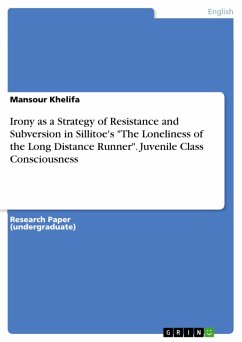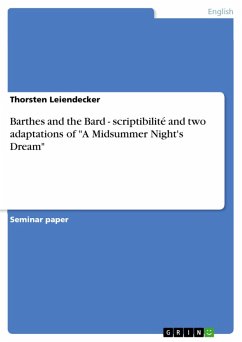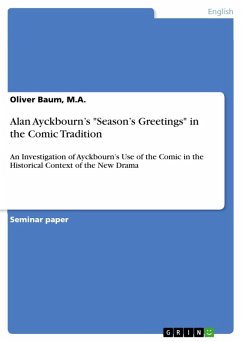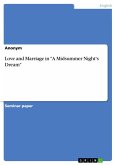Research Paper (undergraduate) from the year 2006 in the subject English Language and Literature Studies - Literature, , language: English, abstract: The sweeping assertion "once a rebel, always a rebel," soliloquised by Alan Sillitoe's character Arthur Seaton in "Saturday Night and Sunday Morning", published in 1958, echoes the dissent of the Angry Young Men of the late fifties and sixties in Britain and functions as a binding theme and narrative strategy yoking together the different fragments of the novel. The purpose of this paper is to study the various aspects of the anti-hero's dissenting action, assess the limits of his rebellion and eventually relate the complexity of the narrative to a larger corpus of literature that is more likely to be dubbed "literature of dissent" rather than "literature of exhaustion" (John Barth 70 - 83); although Sillitoe's novel may partake of both. Such subversive trends, typical of post-war British literature, permeate a wide spectrum of working-class ethics ranging from mere industrial dissent to more life-enhancing assent. The ultimate purpose of such literary representation of modern life in Britain is to question, at the same time, the bourgeois standards of profitability and the controversial identity of the marginally subversive working-class anti-hero trapped between hope and despair, revolt and submission.
Dieser Download kann aus rechtlichen Gründen nur mit Rechnungsadresse in A, B, BG, CY, CZ, D, DK, EW, E, FIN, F, GR, HR, H, IRL, I, LT, L, LR, M, NL, PL, P, R, S, SLO, SK ausgeliefert werden.









